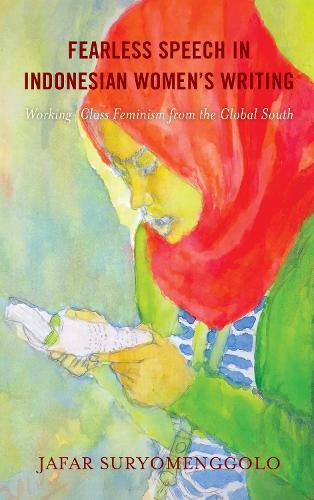
Fearless Speech in Indonesian Womens Writing: Working-Class Feminism from the Global South
(Hardback)
Publishing Details
Fearless Speech in Indonesian Womens Writing: Working-Class Feminism from the Global South
By (Author) Jafar Suryomenggolo
Bloomsbury Publishing PLC
Lexington Books
1st October 2021
United States
Classifications
Professional and Scholarly
Non Fiction
Feminism and feminist theory
Gender studies: women and girls
305.4209598
Physical Properties
Hardback
250
Width 159mm, Height 230mm, Spine 24mm
567g
Description
By offering perspectives from Indonesian female workers, this book discusses the contemporary progress of working-class feminism from the Global South. It presents a critical reading of the socio-political conditions that allow female workers to narrate their lives and work as precariat labor toiling under the forces of globalization. Its analysis centers on their writings which appear in the form of legal documents, personal accounts, essays, and short stories. Thus, the book shows how these women change their situation by challenging the political order and demanding gender justice with their fearless speech.
Reviews
Fearless Speech is a landmark study that explores the manifold ways and means by which Indonesian women workers reflect on, and advocate to improve, their living and working conditions. Through speeches, legal texts, essays, and fiction, these women wield their pens and engage creatively and critically with issues of work, family, activism, emotion, and writing. In so doing, they not only bear testament to, but are themselves the makers and promoters of, a vibrant, resilient working-class culture.
-- Caroline S. Hau, Center for Southeast Asian Studies, Kyoto UniversityThis is a unique and invaluable book. Historians, sociologists and anthropologists of labor or Indonesia will gain access to a treasure trove of new material based on the personal accounts of Indonesian female workers from the 1980s to the present day. These provide new avenues through which to understand recent social and economic change in Indonesia, based on the experiences of a segment of Indonesian society that is all too often overlooked by analysts more typically focused on middle class or elite males.
-- Vedi Hadiz, Professor of Asian Studies, Asia Institute, University of MelbourneAuthor Bio
Jafar Suryomenggolo is associate member of the Centre Asie du Sud-Est (CASE), Paris, France, and visiting research fellow at the Institute for Southeast Asian Studies, Jeonbuk National University (JISEAS), South Korea.
